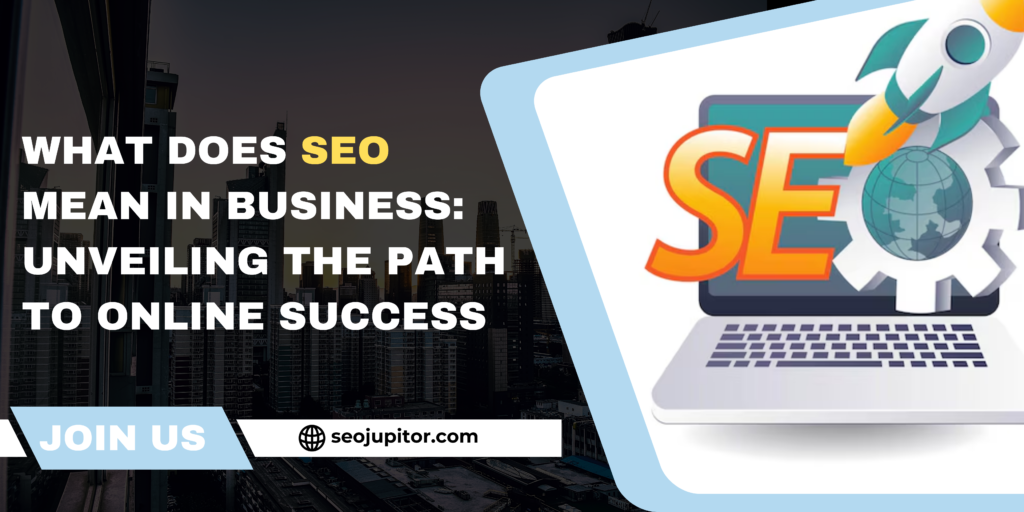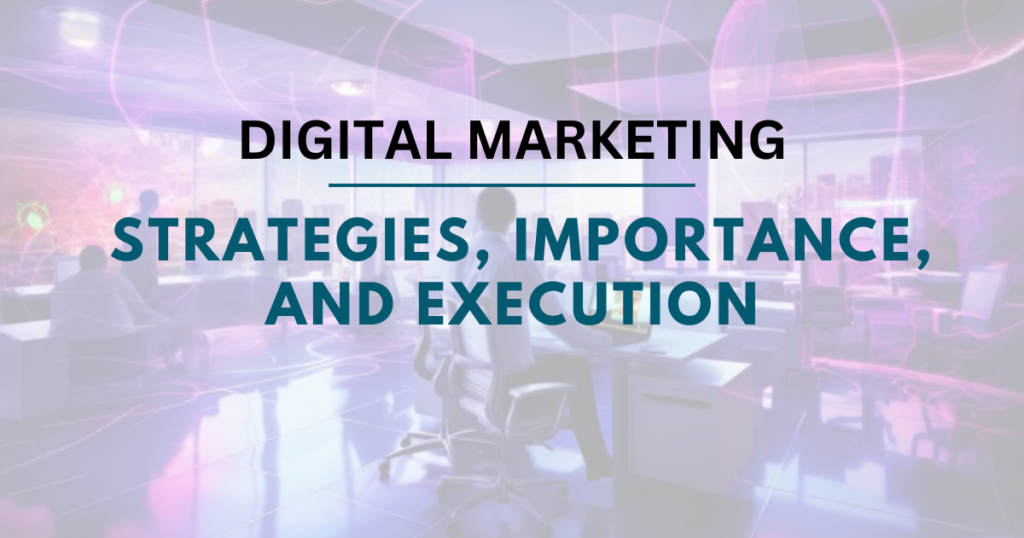The term SEO reverberates across every corner of the business world. But what does SEO mean in business exactly? It’s not just about ranking higher on search engine results pages (SERPs). It’s a strategic approach to enhancing online visibility, driving organic traffic, and ultimately boosting revenue. Let’s delve deeper into the multifaceted realm of SEO and unravel its significance for businesses.
Understanding SEO: A Foundation for Online Growth
SEO, or Search Engine Optimization, encompasses a myriad of techniques aimed at improving a website’s visibility and ranking on search engine results. At its core, SEO is about aligning your online presence with the algorithms of search engines like Google, Bing, and Yahoo to attract more visitors and potential customers.
In the competitive arena of online business, visibility is paramount. By optimizing various elements such as keywords, content quality, backlinks, and user experience, businesses can ascend the ranks of search engine results, making it easier for their target audience to find them.
1. The Role of Keywords: Building Blocks of SEO Success
Keywords serve as the bedrock of SEO. These are the terms and phrases that users type into search engines when seeking information, products, or services. Incorporating relevant keywords strategically throughout your website’s content helps search engines understand what your business is about and matches it with user queries.
2. Content Quality: Crafting Compelling Narratives for Engagement
In the realm of SEO, content reigns supreme. High-quality, relevant, and engaging content not only attracts visitors but also encourages them to stay longer on your site, reducing bounce rates and signaling to search engines that your website provides value to users. From blog posts and articles to product descriptions and landing pages, every piece of content should be meticulously crafted to resonate with your audience.
3. Backlinks: Building Bridges to Authority and Trust
Backlinks, or inbound links from other websites to yours, play a crucial role in SEO. They act as votes of confidence in the eyes of search engines, indicating that your website is reputable and authoritative within its niche. Building a robust backlink profile through guest posting, outreach, and content partnerships can significantly enhance your website’s credibility and visibility.
4. User Experience: Navigating the Path to Customer Satisfaction
User experience (UX) is not just a buzzword; it’s a cornerstone of effective SEO. A well-designed, intuitive website that loads quickly, is mobile-friendly, and offers seamless navigation delights visitors and encourages them to explore further. By prioritizing UX, businesses can not only improve their search engine rankings but also foster long-term relationships with customers.
Implementing SEO Strategies: A Roadmap to Success
Now that we’ve unraveled the essence of SEO in business, let’s explore practical strategies to harness its power and drive sustainable growth.
1. Conduct Comprehensive Keyword Research
Before embarking on any SEO campaign, it’s crucial to conduct thorough keyword research to identify relevant terms and phrases that your target audience is searching for. Tools like Google Keyword Planner, SEMrush, and Ahrefs can provide valuable insights into search volume, competition, and potential opportunities.
2. Optimize On-Page Elements
On-page optimization involves optimizing various elements within your website to improve its visibility and relevance to search engines. This includes optimizing title tags, meta descriptions, headings, and image alt texts with target keywords, ensuring proper URL structures, and crafting compelling meta descriptions that entice users to click.
3. Create High-Quality Content
Content is the cornerstone of any successful SEO strategy. Invest in creating high-quality, relevant content that addresses the needs, interests, and pain points of your target audience. Whether it’s blog posts, articles, videos, or infographics, aim to provide value and solve problems to establish your brand as a trusted authority in your industry.
4. Build Quality Backlinks
Building a robust backlink profile is essential for enhancing your website’s authority and trustworthiness in the eyes of search engines. Focus on acquiring high-quality backlinks from authoritative websites within your niche through guest blogging, influencer outreach, and content collaborations.
5. Enhance Website Speed and Performance
Website speed and performance are critical ranking factors that can significantly impact user experience and search engine rankings. Invest in optimizing your website’s loading times, minimizing server response times, and leveraging caching and compression techniques to deliver a seamless browsing experience for your visitors.
6. Leverage Social Media and Online Reviews
Social media signals and online reviews can also influence your website’s visibility and credibility. Actively engage with your audience on social media platforms, share valuable content, and encourage satisfied customers to leave positive reviews on review sites like Google My Business, Yelp, and Trustpilot.
Conclusion: Empowering Your Business with SEO
In conclusion, SEO is not just a buzzword; it’s a fundamental pillar of online success for businesses of all sizes. By understanding the intricacies of SEO and implementing strategic tactics to enhance your online visibility, you can attract more visitors, generate leads, and ultimately grow your business in the digital age.
Harness the power of SEO to elevate your brand, expand your reach, and outshine the competition in today’s competitive marketplace. Remember, SEO is not a one-time endeavor but an ongoing journey of optimization and refinement to stay ahead in the ever-evolving digital landscape.
FAQs
1. Can SEO Really Boost My Business's Online Visibility?
Absolutely! SEO is a powerful tool for improving your website’s visibility, driving organic traffic, and attracting potential customers who are actively searching for products or services like yours.
2. How Long Does It Take to See Results from SEO Efforts?
SEO is a long-term strategy that requires patience and persistence. While some improvements may be noticeable in a matter of weeks, significant results often take several months to manifest. Consistent effort and optimization are key to achieving sustainable growth.
3. Is SEO Suitable for Small Businesses?
Yes, SEO is equally beneficial for small businesses as it is for large corporations. In fact, for small businesses with limited marketing budgets, SEO offers a cost-effective way to compete with larger competitors on a level playing field.
4. What Are the Common Mistakes to Avoid in SEO?
Some common SEO mistakes to avoid include keyword stuffing, neglecting mobile optimization, ignoring technical SEO issues, and pursuing low-quality backlinks. It’s essential to stay updated on best practices and algorithm changes to avoid penalties and maintain your website’s search visibility.
5. How Can I Measure the Success of My SEO Campaign?
Measuring the success of your SEO campaign involves tracking key performance indicators (KPIs) such as organic traffic, keyword rankings, conversion rates, and return on investment (ROI). Tools like Google Analytics, Google Search Console, and third-party SEO software can provide valuable insights into your campaign’s performance.
6. Do I Need to Hire an SEO Agency, or Can I Do It Myself?
While DIY SEO is feasible for some businesses, hiring a reputable SEO agency or consultant can provide valuable expertise, resources, and insights to maximize your results. Look for agencies with a proven track record of success and transparent pricing models to ensure you get the best value for your investment.





Pingback: Impact of AI on the Evolution of Search Engine Optimization
Hi friends! Decide happiness and appreciation as your constant companions. These feelings will brighten your path.